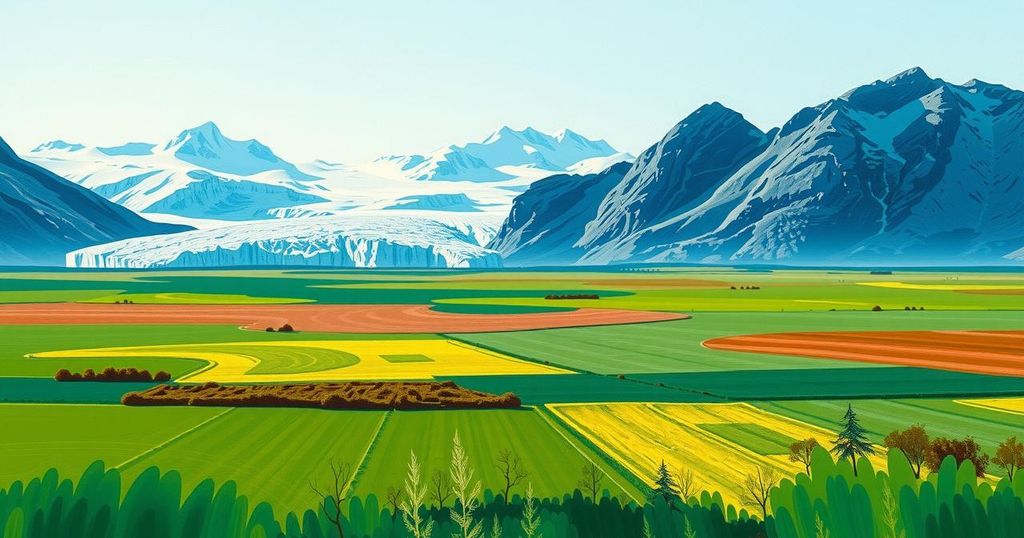Saul Luciano Lliuya, a farmer from Huaraz, Peru, is suing RWE, a German energy company, asserting that its greenhouse gas emissions have contributed to glacier melting and flood risks. The case, beginning at the Higher Regional Court of Hamm, seeks to hold corporations accountable for climate change. RWE rejects the claim, arguing that individual emitters should not be found liable for global warming effects. The situation reflects broader concerns about water security and climate adaptation amid significant glacial retreat in the region.
In the high Andes of northern Peru, the glaciers of the Cordillera Blanca, admired for their beauty, now present a concerning risk of meltwater floods. This scenario serves as the backdrop for a groundbreaking legal case addressing corporate accountability for greenhouse gas emissions, which contribute to climate change and extreme weather events globally.
Saul Luciano Lliuya, a farmer and mountain guide from Huaraz, has filed a lawsuit against the German energy company RWE. He contends that the firm’s emissions have accelerated glacier melting, thus threatening local flood safety. Lliuya is seeking RWE’s financial contribution for flood defenses that correspond to its role in global emissions.
The case is set to commence at Germany’s Higher Regional Court of Hamm. Lliuya’s legal team asserts that RWE is responsible for 0.5 percent of global emissions, which translates to a claim for approximately €17,000 towards Huaraz’s $3.5 million flood defense plan. Lliuya, supported by the environmental organization Germanwatch, aims to establish a legal precedent holding polluting firms accountable for climate-related mitigation efforts.
RWE has dismissed the lawsuit, deeming it unjustifiable and asserting that individual emitters should not be liable for the broader implications of climate change. The company argues that this lawsuit seeks to enforce an unsustainable principle across the industry where single entities could be held responsible for global climate consequences.
The legal struggle follows past events of flooding in Huaraz, a city susceptible to the growing meltwater from nearby glacier-fed Lake Palcacocha. Current conditions have seen the lake’s volume increase significantly, posing heightened risks to the population of over 65,000 inhabitants. As residents like Nestor Acuna contend with fears of overflow and landslides, local authorities are advocating for expanded infrastructure to safeguard against potential disasters.
Recent studies reveal that Peru has lost over half of its glaciers in the past sixty years due to climate change, with regions such as Ancash experiencing increased flooding vulnerability. The glaciers are crucial for seasonal water supplies, and their ongoing retreat poses serious risks.
Lliuya expresses deep concern for the loss of glaciers, stating, “It worries us, saddens us, that we’re losing our glaciers.” His attorney, Roda Verheyen, remains optimistic, emphasizing that simply presenting their evidence constitutes a significant victory, regardless of the court’s decision.
This case initiated by Saul Luciano Lliuya against RWE underscores a pivotal moment in climate litigation, as it seeks to hold corporations responsible for their greenhouse gas emissions and resultant environmental impacts. The plight of Huaraz residents emphasizes the urgency of addressing climate change while highlighting the role of legal frameworks in supporting environmental justice. As Peru’s glaciers continue to recede, the implications for water security and climate resilience remain critical issues.
Original Source: sightmagazine.com.au






